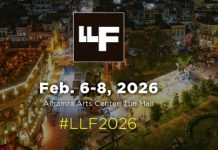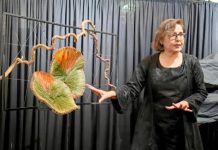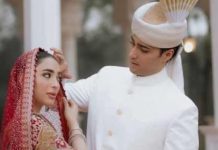KARACHI, June 21: A melodious thungri (instrumental) with Abdul Ghani on the harmonium, Irfan Haider on the tabla and Gul Ahmad Khan, a promising young sarangi player, set a perfect foreground for the classical music event organised by the Arts Council on Thursday evening to pay tribute to the late Ustad Ahmad Ali Khan. The evening marked the 14th death anniversary of the legend. Ustad Ahmad Ali Khan was born in 1942 in Amritsar, to the ‘Gwalior Gharana’, a family which rose to fame during the Mughal Emperor Akbar’s reign. He entered the realm of classical music with his brother Ustad Rehmat Ali Khan. The brothers were trained under their father, Ustad Umeed Ali Khan, one of the greatest eastern classical musicians Punjab ever produced. Khan sahib made his breakthrough on the radio in 1955 and instantly rose to fame. He gained significant recognition around 1962, and began playing at several classical musical conferences in India.
While some vocalists who performed at the event were relatives of the maestro, it was not just a family affair at all as those belonging to the Gwalior Gharana kept the audience captivated by their skills for hours.
Tanveer Ahmad Khan heralded the evening with the melancholic ‘Yaad Piya Ki Aye’. His performance was flawless, but it was unfortunately let down by poorly engineered sound and the cacophony of bracket fans that made the audience strain their ears to hear him. Despite this when he played ‘Saiyaan bina teray’ he had the audience immediately captive to his impressively unrestrained jugalbandi.
Halfway through, Ustad Rehmat Ali Khan’s son took over the stage and invited Ustad Khursheed Hussain to accompany him. Ustad Khursheed Hussain is a prolific tabla player and his fingers can quickly spin magic for the ears. The duo played an exquisite rendition in Raag Aiman, Khan sahib’s son’s groovy vocals perfectly complemented Ustad Khursheed’s energetic tabla.
They were followed by Karam Abbas and Waseem Abbas (sons of the late Ustad Ahmad Ali Khan). The soulful sound of the sarangi infused with their vocals was truly majestic. In the last twenty minutes, Karam Abbas used his alaap to transport the audience into a musical universe.
Towards the end, the audience had dispersed and most of those remaining were direct relatives of Khan sahib. Since they included some of the maestros of eastern classical music, Karam Abbas requested the great Ustad Fateh Ali Khan to take over the stage and enlighten the audience with the expansiveness of classical music.
With Ustad Khursheed Hussain on the tabla, the duo seemed to have entered a state of collective consciousness where the vocals and the tabla shared the same ideas. The duo performed some of Ahmad Ali Khan’s favourites. Even though they have entered the retirement stages, age did not seem to matter. The two performed for a little longer than any other artist for the night and brought down the curtain an hour later.
Asna Rizvi hosted this evening which was ripe with melody and the richness of classical symphony. Shields sponsored by Geeta Art Publications were presented to all the artists by Rehmat Abbas Khan (Ustad Rehmat Ali’s son.)
It was surprising that although the event had not been widely marketed and that it was a weekday, the turnout suggested otherwise. The event could have been a resounding success had the sound equipment been of better quality. Nevertheless, the audience enjoyed the performance and left with their ears and souls attuned to the classical maestro’s work.











